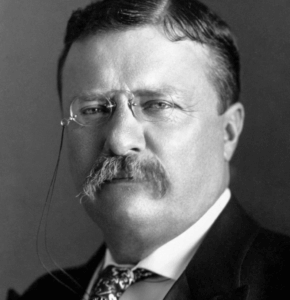RANKINGS
EVENTS
I COMMITTED
COLLEGE
ABOUT

Extra Inning Softball has partnered with former DI softball coach Julie Jones (Akron, Cleveland State) and current Mental Performance and Mindset Coach to help give athletes, coaches and others in the softball world the “Mental Edge.”

Julie spent 26 years leading Division I softball programs with her mission being simple: to build smarter students, stronger athletes and better people.
Today, she also serves as an Adjunct Professor at Ursuline College teaching well-being and performance, mindset training, athletic coaching and career development courses in both the undergraduate and graduate studies programs.
Continuing her work of helping student-athletes reach their goals on and off the field, Julie regularly sends Mindset Made Simple Tips to players and coaches across the country as well as posting them on her site, SSB Performance.
Today’s “Mindset Made Simple covers how we spend a lot of time thinking about the past and the future, but oftentimes can be woefully lacking when it comes to dealing with the present!
As Julie discusses this week:
“Our mind wanders at least 47% of the time and research shows that more mind wandering leads to less happiness and reduced performance.”
So how do we stay in the present and, most importantly, maximize our life experiences in the here and now? That’s what this week’s Mental Edge will teach us…
Keep reading below for more on this subject (or watch her cover it in the video version on YouTube!):
*****
Last week I told you I am not a fan of heights, so a visit to “America’s Roller Coast” (amusement park) Cedar Point in Sandusky, Ohio, seems… well… like a nightmare!
I am not a roller coaster fan, but it didn’t matter since most rides were temporarily closed due to high winds. At least I didn’t have to look like too much of a chicken reading a book while the rest of my group stood in line for some of the best thrill rides in the world!
Roller coasters and other spinny rides aside, I had a great time.
The highlight?
Walking through the park as my 10-year-old held my hand. I didn’t want to hold on too tightly to point out the fact that he was holding his mom’s hand, but, boy, did I take in every second.
This is the guy who hasn’t called me “Mommy” since he was 5…and I now find myself grabbing his arm as we cross busy streets…no hand-holding for this cool guy!
But something made him grab my hand as we were walking, and I savored every… single… second.

I WAS PRESENT and fully aware of how special these few minutes were. As the memes on social media often remind us, we never know when we are experiencing something for the last time! I think these are meant to help us savor moments…and keep us in the present…a place we spend very little time.
Even so, we read them and then start thinking about what we need to do later or about something we did last week that didn’t go well. We get sucked right back into our busy lives!
How often are we truly present? How often do we miss out on what is going on right in front of us as we travel through different time zones in our minds?
What are you thinking about now?
I bet you are thinking, “Do I have time to read this entire tip?” Maybe you are thinking about how hungry you feel or about something someone said to you this morning that got under your skin.
No matter who you are or where you are, you and I both spend a ton of time in the past and the future… and in the meantime, we are unable to be our best in the PRESENT moment.
I talk a TON about making a plan. This forces us to look back at what we have done and ahead to what may come, and this is important for success.
This type of mental time travel is not our problem. Our problem is that our mind wanders at least 47% of the time and research shows that more mind wandering leads to less happiness and reduced performance.
What takes us away from the present? The list is endless. And, unfortunately, if there isn’t anything in our external environment to distract us, our amazing but frustrating brain will come up with its own… and this is what gets us into time-traveling mode. Then add in stress, anything that makes us feel even the least bit threatened and that occasional bad mood… and here we go… or there we go!
We reflect (and not for planning purposes). We worry.
We make up stories of how things will go, sometimes based on what has happened in the past (the not-so-good things, of course), sometimes based on the “what if’s” of or fear. All these things take us away from what is at hand.
Research shows that those that take pictures or videos at an event to save that memory for the future (thinking ahead) show less enjoyment of the actual event than those who sit in the moment and experience it as it is! And the real kicker is, the person with the pictures remembers less about the experience than the one without a picture. Crazy!
Why is it so important to learn to find the present to perform our best?
Because we can’t change what has happened and we can’t make time move any quicker to get to the future that may not even happen. But we can act or experience what is happening now… which can make the future better… and may even help us use the past as something positive!
But if we aren’t paying attention to what we are doing now, we can’t do it well.
And all of this time travel stresses us out.
Being present allows us to make choices… with all our focus on important variables at the moment… to produce the best outcome. We move from reacting to responding…because we have information from the present moment.
We have the information that matters.
Since every play has a life of its own, it does not dictate what happens next.
Therefore, taking our last failure to our next play… or even our last success into our next play will not help us AS WE ARE TRYING TO EXECUTE.
This is not to say that we should not relive that success or revise the failure before our next opportunity. What it means is when we get to our next opportunity, if we are thinking about what just happened, or what may happen we will miss what is happening!
It’s about being mindful in the moment. It’s about letting go of the need to judge every single thing. It’s about priming our minds for success, then trusting our training. It’s about freeing up space to pull in the information that will help us succeed. Where is the defense? How should I adjust to the environment? What does my team need from me right now?

Being present allows us to make good choices and figure out how to, as Teddy Roosevelt said many years ago: “Do what we can, with what we have, where we are.”
But how do we get into the present? How do we circumvent our frustrating brain that takes us on trips down memory lane and into the unknown with such ease?
I work with my athletes and teams on simple breathing exercises that help us rewire our brains and build that refocus muscle we all have, but often disregard.
Try this.
Take 3 minutes. Cut your breaths to 6 per minute (that is all you need even though we normally breathe 12 to 20 breaths per minute). Research has shown that breathing that is quick and shallow… what we do when we are stressed… can contribute to problems like anxiety, high blood pressure, insomnia and much more but slowing the breath resulted in quieting of the mind and emotions (Pepper, et. al., 2005).
More importantly, doing these 6 breaths per minute (5 seconds in, 5 out) allows us to catch our mind wandering, then bring it back to our focal point, be it the air coming in and out of our nose or our stomach rising and falling – you choose!
Once we realize we can do this in a relaxed fashion, we can use it when the pressure is on… because we have practiced.
We can also use it when we need to be present to feel the love of holding our son’s hand as we walk, not rushing ahead or squeezing tighter because we are afraid it won’t happen again or long enough. We can just be where we are and do what we can, with what we have… right there!
Think about how being present in an at bat can change our ability to see the ball and hit it.
Think about how being present at the free throw line can help us feel the ball and our bodies and let our training do the work.
Think about how being present can help us listen and take in the factors that are important in a conversation or when receiving instructions on the game plan.
The next time you are walking around your neighborhood…with or without your hand in someone else’s, pull yourself to be present.
Take it all in with a deep breath. Listen to what is going on around you. Look for something new. Look at the changing leaves and enjoy them for what they are…no judgment…just beauty.
Then walk in that peace.
The next time you are in the heat of battle, pull yourself back to the present when you feel your mind going away from where you need to be focused. Listen to what is going on around you. Look for the information you need to be successful. Take what you need in with a deep breath.
Then go and do what you do at your best.
It seems so simple. But simple isn’t easy.
Remember what President Roosevelt said so simply “Do what you can, with what you have, where you are.”
If you can follow his advice, you will reduce your stress and give yourself the best chance for success!
Who or what do you need to be present for today?
Manage the moments and have a great week!
Julie
P.S. Need an outside voice to help hit home the importance of perspective on performance? Contact me at any time to talk about how we can help your athletes through my 5 Minute Mindset™ program and customized team sessions to help them make the most out of the opportunities in front of them! Email me at [email protected] or call/text 234-206-0946.
To learn more from Julie check out her social media sites below; to contact her personally, she can be reached via email at: [email protected]
SSB Performance:
Website: www.ssbperformance.com
Facebook: /ssbperformance
Twitter: @SSBMindset
Instagram: /ssbperformance
Sign up to receive immediate, daily, or weekly news updates!
Fill out this form to submit your transfer updates. These changes are subject to approval.
Fill out the form below to verify that you’re part of the Extra Elite!